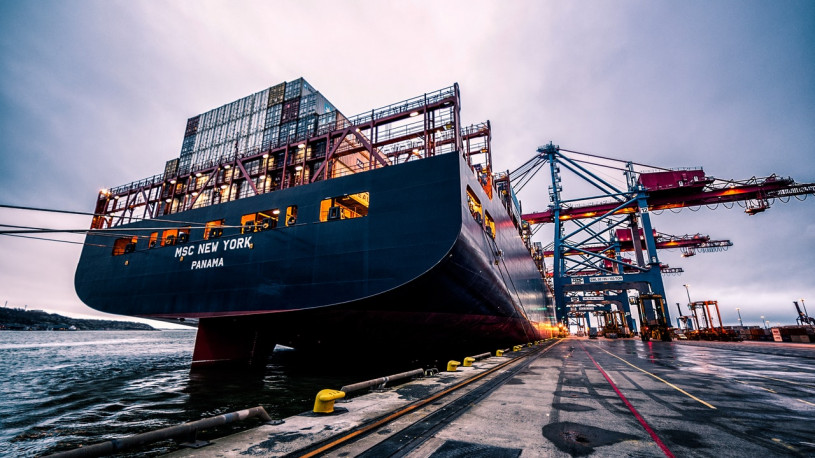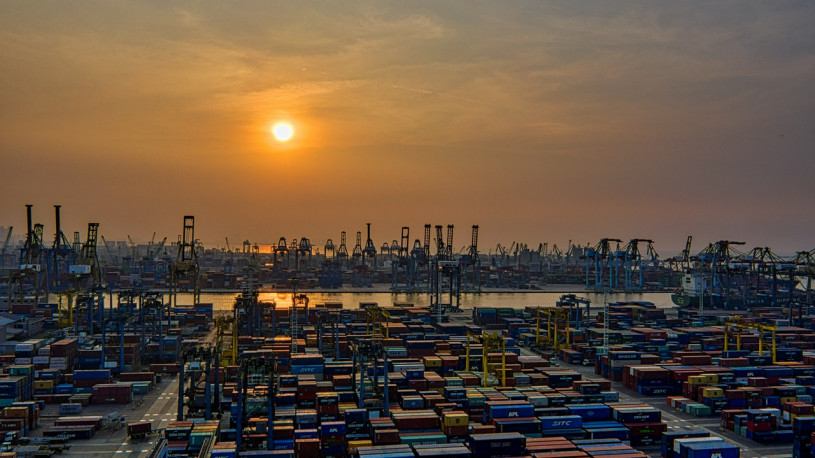-
Accessing South African Industrial Chemicals: Part 1 The Past
 Continue Reading
Continue ReadingSouth Africa has had a chequered history; centuries of underdevelopment, followed by massive economic changes and religious division in the mid-19th century, a gold rush, a civil war and years of isolation due to apartheid.
It has not been an easy journey for the nation, and this has had an impact on economic development there.
With regards to the chemicals industry, it is interesting to note that its diamond and gold industry became a driving force in chemical production speciality. As Prof. Thokozani Majozi of the University of Witwatersrand, Johannesburg notes, “South Africa’s desire to exploit opportunities provided by the mining of diamonds and gold necessitated the emergence of a strong and highly diversified industrial sector. Sustained access to those minerals demanded the establishment of an explosives industry, which was soon followed by a chlor-alkali industry and industrial specialty in fine chemicals sectors.”
Even the government’s own Ministry of Trade and Industry reports on the impact that the country’s history has had on the industry, commenting on how trade embargoes caused by apartheid led the chemicals industry to develop with only domestic markets in mind. In a recent report the Ministry states that, “The chemicals industry has been shaped by the political and regulatory environment that created a philosophy of isolationism and protectionism during the apartheid years. This tended to foster an inward approach and a focus on import replacement in the local market. It also encouraged the building of small-scale plants with capacities geared to local demand, which tended to be uneconomic.”
However, this is not to undermine the importance of the chemicals industry to the country and to the continental economy as a whole. As the Chemical and Allied Industries’ Association says, “The chemicals industry is a key sector of the South African economy. It accounts for about 25% of the nation’s manufacturing sales and is the most developed of its kind in Africa.”
However, despite the clear importance of the chemicals industry to the nation’s economy and its dominance on the continent, South African chemical production is still relatively underdeveloped. As a recent report by Dilshaad Booley at global consultants Frost & Sullivan confirms, “Despite South Africa having the largest and most sophisticated chemicals industry in Africa, estimated at $30 billion, it only contributes about 1% to the global market.”
With such a small impact on global chemical production, and such a challenging history, can South Africa ever become a major player?
-
The Indian Specialty Chemicals Market: Part 7 Conclusion
 Continue Reading
Continue ReadingDespite the challenges of infrastructure and the pace of development in competitors, India still has a good base for growth. Its population has a cultural desire to be educated, it has an enormous home market for end use chemical products and it has a strong banking sector and access to research funds from both domestic and foreign markets.
The investment in research has been observed by Samit Jain, Director at Pluss Polymers, first hand. He says, “Spending in innovation and R&D has increased dramatically. Venture capital firms are looking beyond the conventional domains of e-commerce, internet and service based companies to fund product developments. Perhaps this explains why Tata Capital Innovation Funds has funded Pluss Polymers with $1.33 million to develop specialty chemicals and polymeric additives.”
He continues by noting how the growth in domestic markets for specialty chemicals is being spurred by growth in the consumables market, and how the growth of the Indian middle class is supporting Indian chemicals expansion. He says, “[The growth] is primarily because of the increased sales in the consumer electronics and automotive segments. In the last few years, a lot of focus has been seen in the R&D sector. Several research institutes, national laboratories like NCL [the National Chemical Laboratory in Pune] and private sector companies are focusing on developing specialty chemicals and polymeric additives for the automotive, textiles, packaging and other end user segments.”
This is a view supported by Manish Panchal, Practice Head – Chemical and Energy at Tata, who notes that, “Higher disposable incomes are fuelling the growth of end-user industries. As a result, the chemicals industry is expected to grow at 13 – 17% over the next five years.”
Kumar Kandaswamy, senior director, Deloitte Touche Tohmatsu India, also believes that the growth targets can be achieved. His research projects specialty chemicals industry growth of 14% over the next five years, and believes much of this growth has been aided by macro-economic trends.
Sunil Jain, Head of Equity Research at Nirmal Bang Securities concurs, stating that, “In the last few months, depreciation of the Rupee, appreciation of the Yuan and an increase in the cost of production in China have helped Indian specialty chemical companies to garner more market share, both in domestic and international markets. I feel specialty chemicals firms are likely to continue outperforming in the next one year.”
Overall, there are a multitude of possibilities for trade and growth in Indian specialty chemicals. Whilst it may already be behind China and other developing Asian producers in terms of production capabilities, and its infrastructure needs an overhaul, it has a market that needs product. India has a youthful, aspiring 1.2 billion people who are hungry for the products of the modern world. All of these products require chemicals, and as the products of the future are increasingly specialised, the chemicals that they require will also specialised.
Its business friendly government and the funds that it has (both foreign and domestic) to support chemicals research and product development, will ensure that India will be a strong player in global chemical supply. For the chemicals trader looking to India, the opportunities are there.
-
The Indian Specialty Chemicals Market: Part 6 Challenges
 Continue Reading
Continue ReadingWhilst most analysts are predicting huge growth in the specialty chemicals industry in India, it is still prudent to be aware of the challenges that the industry is facing before proceeding to invest.
Like any developing economy, India has high aspirations, but much work ahead of it to succeed. Notably, India lacks an efficient infrastructure system. Whilst its rail network is extensive, much of it is outdated and in need of capital investment.
Similarly, India’s seaports are based on old technology and were designed to meet the demands of 20th century trade. With India growing in the 21st century, the port facilities are struggling to cope with demand.
This is a point raised by Nitin Nabar, Executive Director and President – Chemicals at Godrej Industries Ltd, who notes how a number of multinationals are considering basing their chemicals sourcing and manufacturing hubs in India, but that this is dependent on India’s ability to perform in this role. He writes, “India can emerge as a major global player subject to availability of infrastructure, key feed stocks (raw materials) and energy essential to manufacture specialty chemicals at low cost. Bottlenecks at India’s ports need to be streamlined to emerge as a major exporter.”
These are concerns also raised by Manish Panchal, Practice Head – Chemical and Energy at Tata, who believes that India’s predicted growth is only possible if, “Fundamental issues of feedstock availability, reliable and consistent supply of utilities, infrastructure bottlenecks and ease of doing business are addressed.” Most worryingly he notes that, “Progress on these fronts over the past few years have not kept pace as required.”
So whilst India can theoretically be a major chemicals supplier, it is not guaranteed. With the Asian chemicals industry expanding so quickly, then some growth seems more than likely, but other Asian nations are competing for the same markets. Those with better port facilities (Singapore), better centralised infrastructure investment (China), larger oil production capability (Kazachstan, Indonesia) or access to raw materials not available in India, may take better advantage of the current situation.
In many of these cases, India is already behind in the race to support a modern economy. As Panchal notes, “The chemicals industry in India is competing with some of the most efficient production centres with global scale capacity already installed or under development. This is the case across the value chain be it in building blocks or downstream value added products. For example, the Middle East, China, South Korea and Singapore have a high magnitude of installed capacities across various building blocks, intermediates and further downstream derivatives.”
Whether or not the Indian government or industry heads are able to address these problems remains to be seen. Building new roads, railways and port facilities is not cheap, and will be a true test of the governments ‘business friendly’ attitude and ambition.
